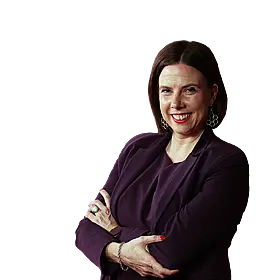Why do so many of us feel the gloom set in when the clocks go back and the days get short? In this week’s podcast, Luke O’Neill delves into the biology of Seasonal Affective Disorder, or SAD, a form of depression that appears in winter and lifts again when the light returns.
First identified about fifty years ago in northern Europe, SAD affects around one in every hundred people severely, and up to one in five to a milder degree. Women are three times more likely to experience it than men. Geography plays a big part too: roughly 1% of people in Florida report symptoms, compared to 10% in Alaska. Around 7% of people here in Ireland can be badly affected each winter.
Luke explains that it all comes back to our circadian rhythms — the body’s internal clock that runs on a 24-hour cycle. In low light, this rhythm can drift off course, affecting hormones like melatonin (which regulates sleep) and serotonin (which affects mood).
The good news? Light therapy works. Recent studies show that 30 minutes a day in front of a light source of 10,000 lux can help reset your body clock and ease symptoms. For comparison, moonlight gives off just 1 lux, normal indoor lighting about 300, while a bright winter’s day can reach 20,000. So, step outside when you can — daylight is the best medicine.
The Mayo Clinic also recommends using a lightbox for about 20 minutes within an hour of waking during the darker months. SSRIs, the antidepressants that boost serotonin, can also provide relief.
Scientists even suggest SAD could have evolutionary roots, a leftover human tendency to “hibernate” through the bleakest months by conserving energy, withdrawing socially, and staying indoors.
Luke ends on an optimistic note: winter may mess with our body clocks, but it doesn’t last forever — the light always comes back.
✨ This episode was suggested by listener John O’Reilly.
💡 Got a question or topic for Luke? Email him at 📩 laoneill@tcd.ie











